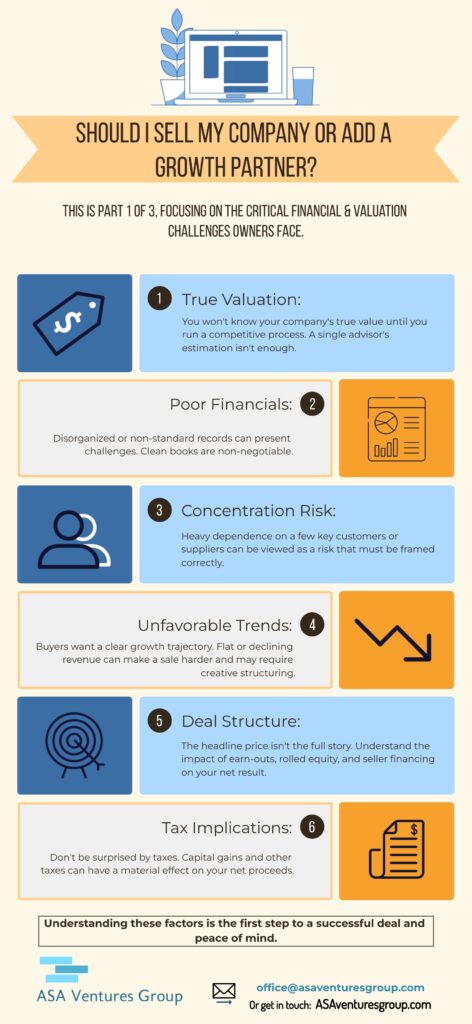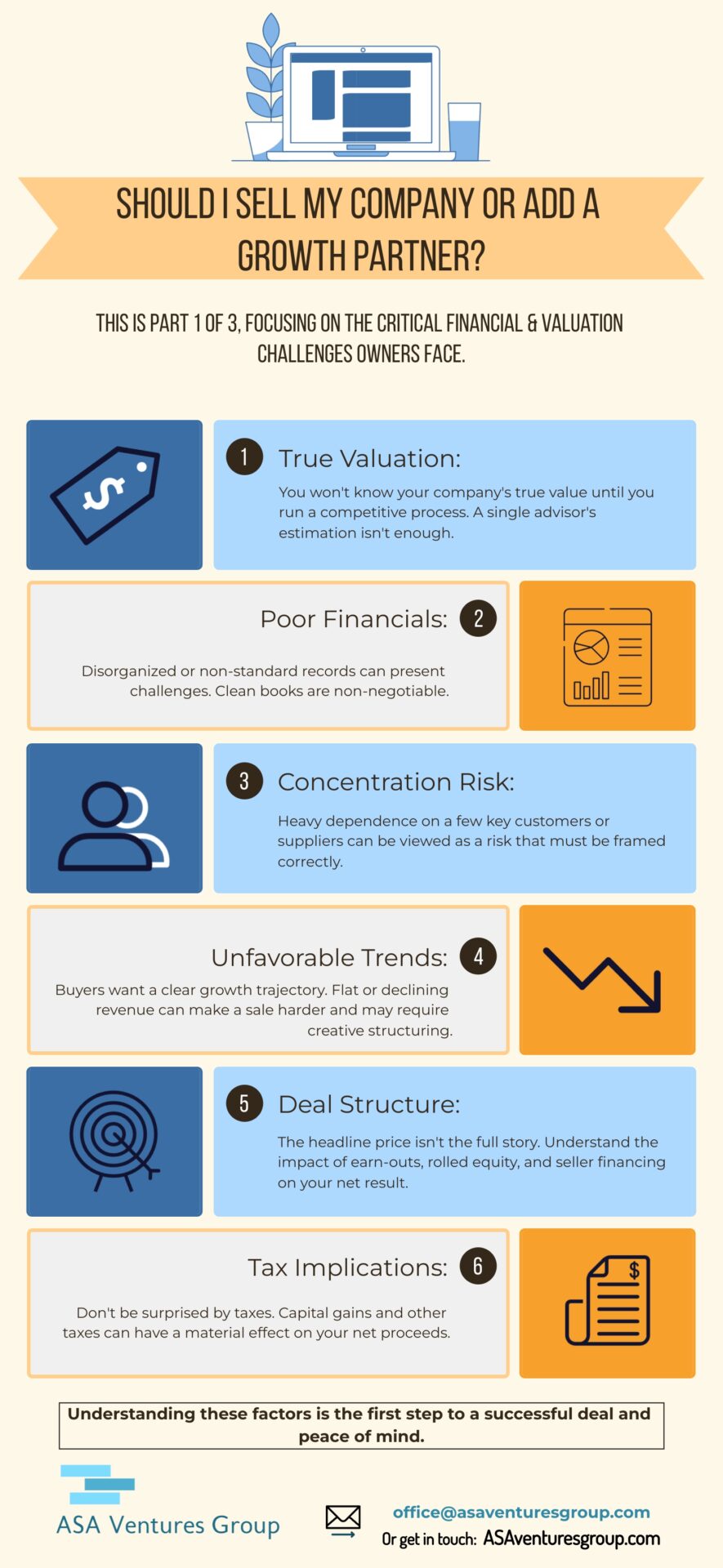
Business owners face a complex and often emotional journey when looking to sell or find an investor for their business. There is no, “one size fits all” approach, which is why you need to go into any process aware of the challenges and have a plan to come up with creative solutions when obstacles are met. Below we’ll specifically discuss some of the financial & valuation challenges and will cover some of the other categories in following posts.
Financial & Valuation Challenges
These are often the most immediate and tangible concerns for business owners.
- Know Your True Valuation: An owner will not know the true value of their company until they have a competitive pool of buyers bidding on it. There is no single buyer, exit planner, or advisor that knows the true value until you take it through a controlled, facilitated process.
- Poor Financial Records: Buyers expect meticulous, clear, and accurate financial statements (P&L, balance sheets). Disorganized, inconsistent, or non-standard accounting practices present challenges that can scare off potential buyers or lead to a lower offer. To prevent this, know how to financially model your transaction and understand the investor’s expectations.
- Dependence on Key Customers or Suppliers: If a significant portion of a company’s revenue or operations depends on a small number of customers or a single supplier, this can be viewed as a risk. Know how to navigate and properly frame this perceived issue to potential investors.
- Unfavorable Financial Trends: A business with flat or declining revenue and profit margins, even if it is currently profitable, can be harder sell. Buyers want to see a clear growth trajectory. Sometimes creative structuring is necessary to achieve the seller’s goals.
- Negotiating the Deal Structure: Beyond the final price, owners are concerned with the terms of the sale, such as seller financing, earn-outs, “rolled” equity, non-compete clauses, and deferred payments. Understand all the terms presented and the implications they have for you post close.
- Tax Implications: Many business owners are not fully aware of the tax consequences of a sale, including capital gains taxes and transfer taxes. These items can have a material effect of net proceeds to the owner after close.
Understanding all the factors as you go into a process is key in having peace of mind during and after the deal close. The more you know, the better.
#M&A, #BusinessAcquisition, #VentureCapital, #PrivateEquity, #ExitStrategy, #BusinessOwner #Valuation

